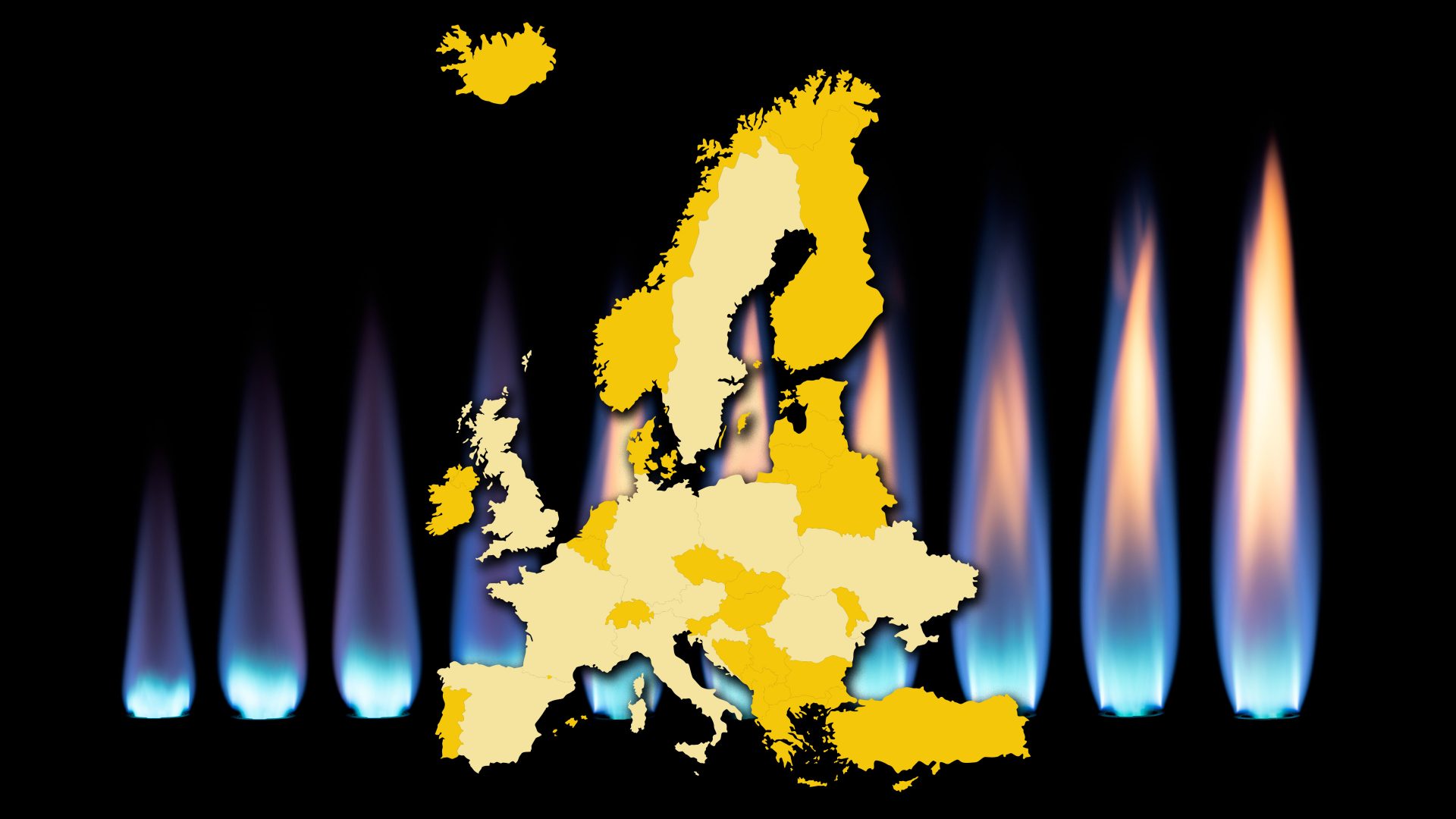LONDON
Estimated average bill in Dec 2022: £153 total (£34 electricity/£119 gas) UK government funding to shield households and businesses from energy crisis (Sept 21-Nov 22): £85bn (2.5% of GDP)
Under the short and turbulent tenure of Liz Truss, British customers – then facing some of the highest energy bills in Europe – were eventually offered a £400 subsidy over six months. An energy cap for consumers is keeping average annual household bills at or below £2,500, which has helped to keep the average bill in London for November to an estimated £153 despite high kW per hour prices. The price subsidy was subsequently revised to last only until April and the cap is set to go up, after which the cost to the consumer could rise sharply.
PARIS
Estimated average December bill: £228 total (£47 electricity/£181 gas) Government funding for energy crisis: £61bn (2.8% of GDP)
France has reduced taxes on energy, including those designed to fund renewables, as well as its domestic tax on final electricity consumption, while focusing heavily on regulating wholesale and retail prices to help its citizens. The main reason prices in France are lower than many comparable countries is because of its ARENH mechanism, which lets French energy providers and competitors of energy giant EDF buy part of its production capacity at below-market prices set by the government. Plans are afoot to cap price increases for households at 15%.
MADRID
Estimated average December bill: £167 total (£64 electricity/£103 gas) Government funding for energy crisis: £33.9bn (3.2% of GDP)
Spain reduced VAT on energy bills initially to 10% and then 5% from July 2022 to the end of December, and cut another tax on electricity to 0.5% from 7%. Like Italy, it has decided to use a windfall tax on higher energy company profits to help households pay their bills and is enforcing a cap on gas prices, as well as a one-off payment of £176 for citizens earning below £12,333 annually but who do not receive benefits. Other measures include targeted payments and discounts to lower-income or vulnerable households.
ROME
Estimated average December bill: £319 total (£104 electricity/£215 gas) Government funding for energy crisis: £79.9bn (5.1% of GDP)
Italy’s government has spent billions eliminating the general system charges for electricity and gas, partly funded using windfall taxes on energy companies, and the proceeds from CO2 emissions permit auctions on the European markets. Greater support for renewables has also helped to reduce overall costs. Other measures include cutting VAT on the use of natural gas, an increase in “social bonus” payments to vulnerable households for energy and introducing payment for bills by instalments.
ZAGREB
Estimated average December bill: £73 total (£37 electricity/£36 gas) Government funding for energy crisis: £2.1bn (4.2% of GDP)
Croatia’s government has introduced subsidies for the cost of gas for households as well as tax relief, including a permanent reduction on the VAT for gas and heat from 25% to 13% and a further temporary fall for gas to 5%, to help with bills. Among other measures, there is a cap on energy price rises of 9.6% for electricity and 20% for gas, as well as one-off payments and social benefits for those at risk of energy poverty, vulnerable people and pensioners.
BERLIN
Estimated average December bill: £133 total (£133 electricity/£0 gas) Government funding for energy crisis: £232.7bn (7.4% of GDP)
With Germany historically heavily dependent on Russian gas, Berliners have been paying, on average, Europe’s highest energy bills. The government paid December’s gas charges for every household, but the November average total bill came in at a whopping £566, according to new research by VaasaETT, Energie-Control Austria and the Hungarian Energy and Public Utility Regulatory Authority (MEKH). This was after the blow was softened by the reduction and then abolition of the EEG surcharge that funds renewables, some targeted payments to more vulnerable groups, and wider measures such as income tax reductions and public transport subsidies. Further help is to come with a price cap at 80% of usual consumption.
WARSAW
Estimated average December bill: £61 total (£33 for electricity/£28 for gas) Government funding for energy crisis: : £10.9bn (2.2% of GDP)
Poland has announced tax cuts on energy and the extended regulation of gas prices for households amid a swathe of wider measures. In July the government agreed a one-off £558 payment to households to help cover the rising cost of coal. Electricity and gas prices will be frozen at 2022 levels and tariff protections of individual customers and “sensitive recipients” such as hospitals and kindergartens will be extended until 2027.
VIENNA
Estimated average December bill: £394 total (£85 electricity/£309 gas) Government funding for energy crisis: £9.3bn (2.6%)
Austria abolished two environmental taxes as part of a range of measures to reduce its energy bills, but overall Vienna’s average household energy costs are among the highest in Europe. Other measures implemented to help with prices include targeted one-off payments, tax cuts, electricity subsidies and price regulation. Bills will be helped further from December 2022 to June 2024 through capping rises next year for both electricity and gas at 15%.
Source: Household Energy Price Index (HEPI) by VaasaETT, Energie-Control Austria and MEKH; © 2022 VaasaETT Ltd for the bills and price data. VaasaETT Ltd and various other resources for measures data. This analysis includes both variable and fixed contracts in most cases, apart from GB, where fixed contracts were not available. Measures and impacts provided are the best estimate and calculations based on knowledge at the time of research.



